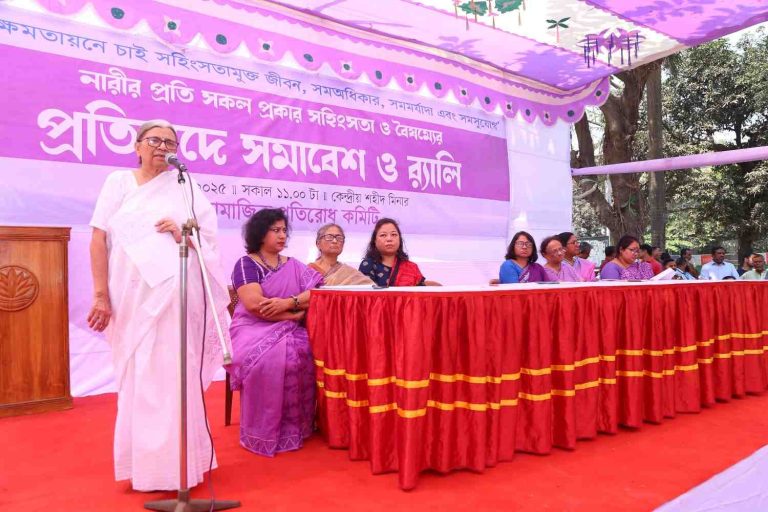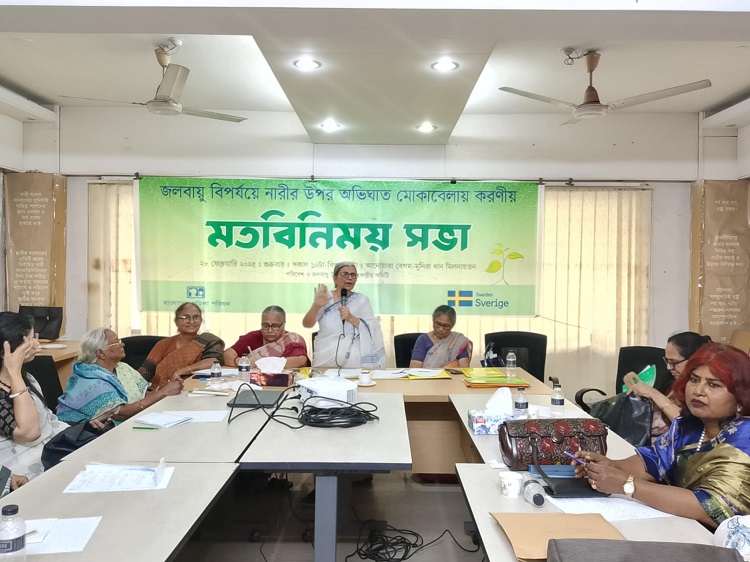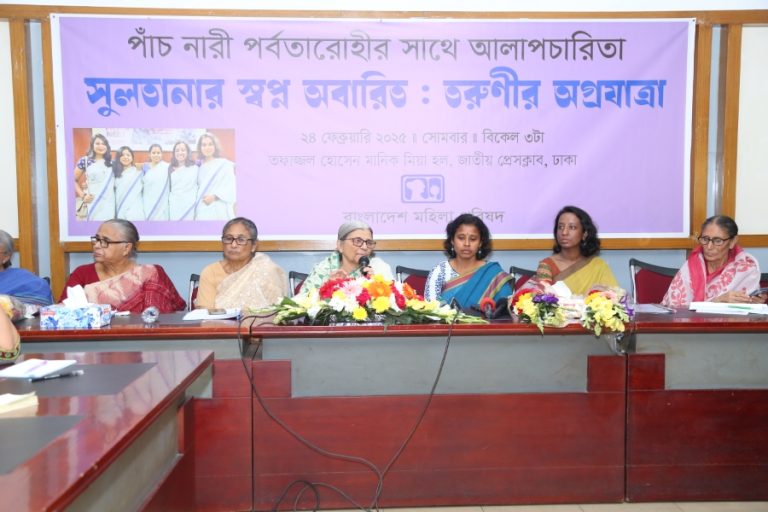On Tuesday, October 8, 2024, at 3:00 PM, a roundtable discussion titled ‘Women’s Human Rights: Realities and Responsibilities’ was held by Bangladesh Mahila Parishad (BMP) at the Anwara Begum-Munira Khan Auditorium, located in the central office of Sufia Kamal Building, Segunbagicha, Dhaka. Dr. Fauzia Moslem, President of BMP, chaired the event, with Maleka Banu, General Secretary of BMP, delivering the welcoming address. Rekha Chowdhury, Vice President of BMP, presented the keynote paper.
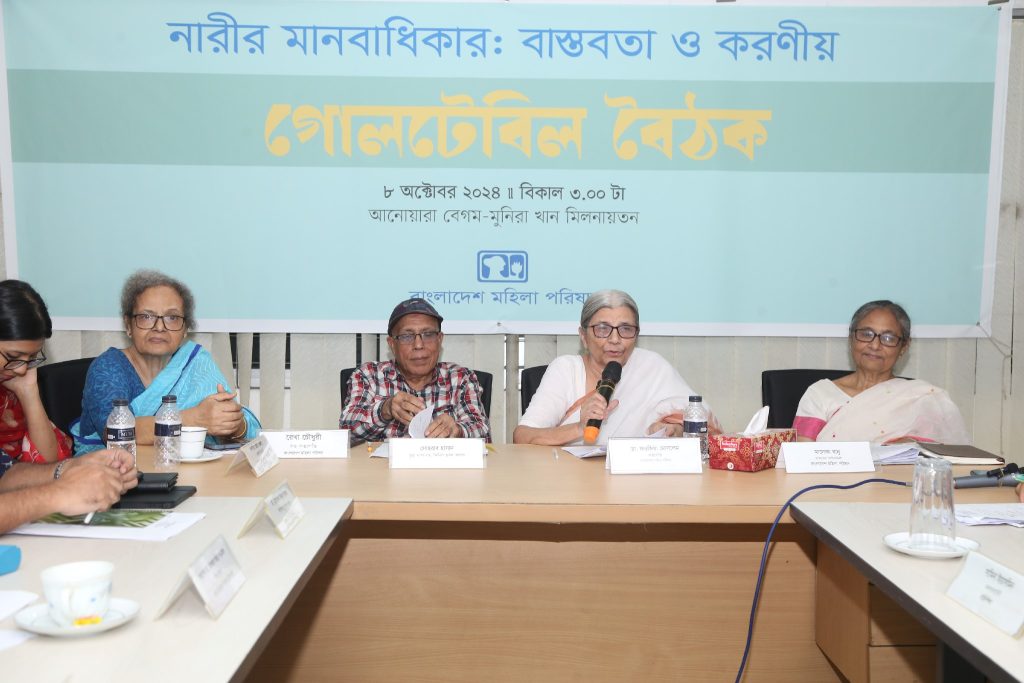
Noteworthy participants included Shohrab Hasan, Joint Editor of Daily Prothom Alo; human rights advocate Shipa Hafiza; Dr. Iffat Ara Shamsad, Professor in the Pediatric Department of Dhaka Medical College Hospital; Dr. Mohammad Moinul Islam from the Population Science Department at Dhaka University; Samina Yasmin, Consultant for BMP and Director of the Strengthening Intergenerational Women’s Movement in Bangladesh Program at Bonnishikha; Md. Tanvir Islam, Program Manager of Gender Justice & Diversity Program at BRAC; Umama Fatema, Central Coordinator of the Anti-Discrimination Students Movement; Rupaiya Srestha Tonchongya, Mass Communication and Journalism student at Dhaka University; Isaba Suhrat, Organizer of March for Breaking Chain; Rafia Rehnuma Hridi, Sociology student at Dhaka University; and Moriam Nessa, Manager of Women’s Rights and Gender Equity at ActionAid.
The discussion addressed various issues, including violence against women, restrictions on their movement, insecurity, and hostile societal attitudes. Speakers urged the media to more visibly and sensitively report violence against indigenous communities and address discrimination against sex workers and individuals with different gender identities. Emphasis was placed on the necessity for a unified and powerful women’s movement to address and resolve these challenges and secure human rights for women.
Shohrab Hasan highlighted the importance of perceiving women as individuals and called for a shift away from patriarchal views. He advocated for greater male empathy and suggested direct elections for one-third of parliamentary seats to be reserved for women, while also recommending legal reforms to eliminate discriminatory statutes.
The discussants highlighted that patriarchal dominance still limits women’s political involvement, despite progress in education and employment from women’s rights movements. Indigenous and hill-tract community women face marginalization and violence, with overall progress being insufficient. There is a call for global solidarity among women, reliable national data on women’s human rights, and recognition of child marriage as a rights violation in Bangladesh. Speakers urged policy reforms to address child marriage, improve education and living standards, promote equal rights, empower marginalized women, increase media awareness of violence against indigenous women, endorse women’s freedom in clothing and mobility, and support advocacy for women’s human rights.
Dr. Fauzia Moslem emphasized BMP’s dedication to strengthening the women’s movement to ensure human rights for all women, regardless of their background. She noted that while international agreements and Bangladesh’s Constitution endorse human rights, their implementation is lacking. With increased awareness among women, there is a corresponding rise in male violence, highlighting the need for legislative actions to safeguard women and recognize their role in national progress.
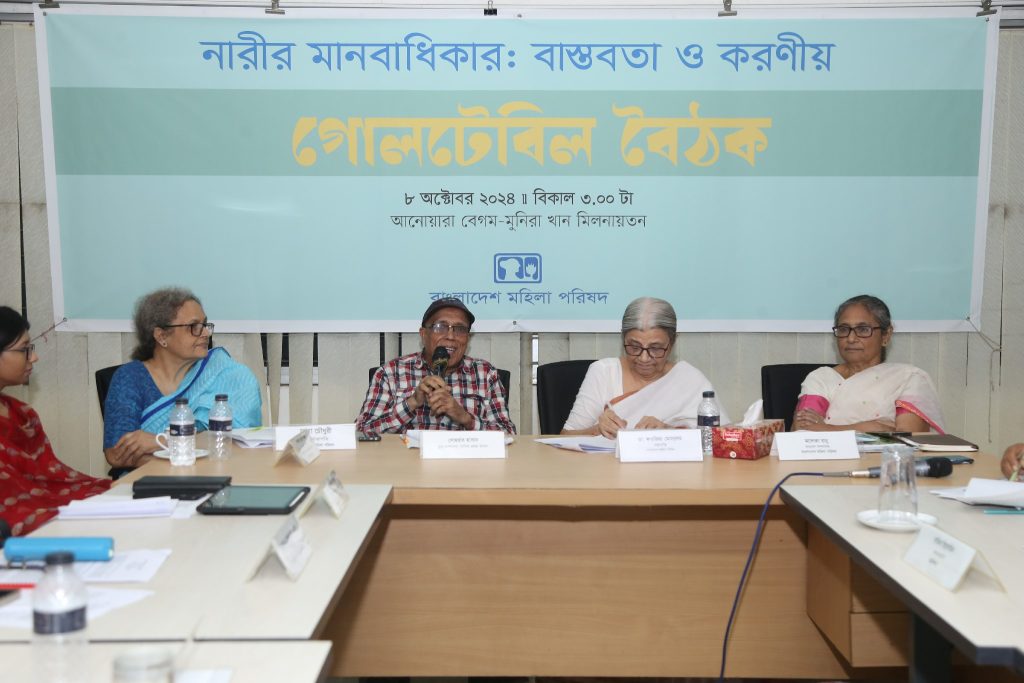
The event welcomed representatives from the Social Resistance Committee’s member organizations, BMP central and Dhaka metropolitan committee leaders, BMP officials, and journalists. Jana Goswami, BMP’s Director of Advocacy and Lobbying, conducted the meeting.

